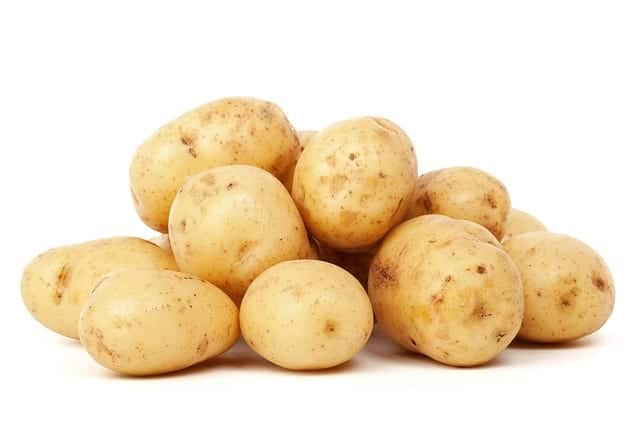[deck]Despite a very hot and dry summer in many parts of the country, this year’s average potato yield in Canada could still top the 300 hundredweight per acre mark.[/deck]
After three straight years of record-breaking yields in Canada, the 2018 potato crop appeared headed for a significant drop, thanks to the very hot, dry summer seen in many parts of the country. Some timely end-of-season rains, however, had growers feeling more optimistic heading into harvest.
“Two or three weeks ago, we were looking at a severe crop production reduction because of excessive heat and lack of moisture,” Kevin MacIsaac, general manager of the United Potato Growers of Canada (UPGC), told Spud Smart in mid-September. “Some areas have rebounded somewhat, which has changed the outlook.”
According to MacIsaac, most of P.E.I. received some much-needed precipitation at a crucial time and central Canada was another area that really benefitted from late season rainfall. He cautioned, however, that in Quebec and Ontario, the rains may have come too late to help some potato varieties.
MacIsaac noted that forest fires were another obstacle for potato producers in British Columbia. Extensive smoke from this summer’s fires affected sunlight absorption in many fields and may have held the crop back a bit in some areas, he said, but growing conditions generally were much better than in 2017 and B.C.’s potato production went up as a result.
Despite this summer’s challenges, MacIsaac said the average potato yield in Canada could surpass the 300 hundredweight per acre mark for the fourth year in a row. Early September guesses from producers indicated Canadian average yield for this year’s crop could be around 302 hundredweight per acre, which is close to the current five-year average of 305 hundredweight per acre. MacIsaac stressed this was a preliminary estimate and the final numbers won’t be known until November.
MacIsaac noted that potato acreages have been generally rising in the past five years, marking a return to close to 2013 levels, and that trend continued this year.
He maintains the rise in potato acres — driven by the corresponding increase in processing capacity in Canada —is a big reason why overall production in Canada has remained consistently high in recent years.
If 2018 crop production estimates hold true, he added, “it would mean we’re going to be a bit tight in terms of supply versus demand. Almost all of that extra production is where it needs to be for processing.”
MacIsaac said total Canadian fresh production is expected to be flat or down slightly compared to 2017, and total seed potato production in Canada is projected to be up a bit this year.
MacIsaac indicated the crop is looking good at the beginning of harvest. “There hasn’t been a lot of disease outbreaks throughout the country, so at this stage we’re looking at a pretty decent quality,” he said.
MacIsaac noted it’s likely many early potatoes will be able to go straight to market because storage holdings have depleted earlier than normal. “It will give growers a little boost,”he said. “There’s always some potatoes that processors contract right into September, but this year the other potatoes were cleaned up really early. Thepipeline right now is probably emptier than it’s been any other year.”
South of the border, American potato market analyst Bruce Huffaker is forecasting a smaller fall potato crop in the United States in 2018 from a year ago.
In his Sept. 5 North American Potato Market News report, Huffaker stated he expects U.S. growers to produce 395.5 million hundredweight of fall potatoes this year, which is 1.1 per cent less than the current estimate of 2017’s fall potato production. That puts the average yield for U.S. fall potatoes at 439 hundredweight per acre, he said.













